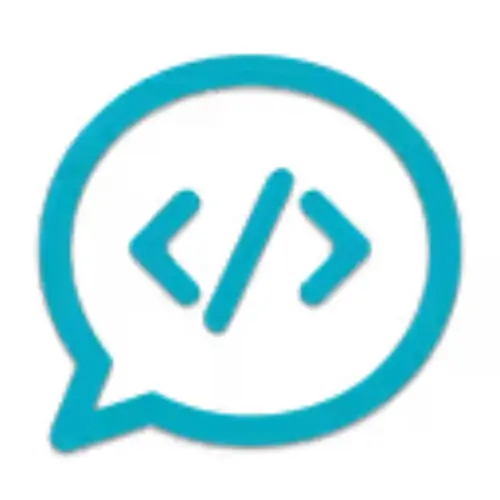Khroma
Have you ever struggled with choosing the right colors for your designs? Enter Khroma, an AI-powered graphic design tool that…
In today’s fast-paced world, businesses need to stay ahead. One way to do this is through smart pricing. AI pricing tools can help. But what are these tools? And how can they help your business? Let’s dive in and find out.
Artificial intelligence (AI) pricing tools are transforming the way businesses strategize and execute their pricing models. By leveraging machine learning and advanced analytics, these tools enable companies to optimize pricing, boost profitability, and stay competitive in rapidly changing markets. Let’s explore how AI pricing tools work, their benefits, and considerations for implementation.
AI pricing tools analyze vast amounts of data to recommend optimal pricing strategies. They incorporate factors such as market trends, customer behavior, competitor pricing, and product demand.
Here’s an overview of their key functionalities:
AI tools pull data from various sources, including sales history, competitor pricing, and external market conditions. For instance, an e-commerce platform might use an AI tool to track real-time competitor prices.
The tools use algorithms to identify patterns and predict outcomes. For example, they might analyze how price changes affect sales volume over time.
Many AI tools offer dynamic pricing capabilities, adjusting prices in real-time based on demand fluctuations. Airlines and ride-sharing apps often use this feature to maximize revenue.
Users can test various pricing scenarios to predict their impact on revenue and profitability. This helps businesses make informed decisions.
There are many reasons to use AI pricing tools. Here are some of the top benefits:

Not all AI pricing tools are the same. Here are some key features to look for:
| Feature | Description |
|---|---|
| Data Analysis | Analyzes large amounts of data quickly. |
| Dynamic Pricing | Adjusts prices in real-time based on market changes. |
| Competitor Monitoring | Keeps an eye on competitor prices. |
| Customer Insights | Understands customer buying habits. |
| Easy Integration | Works with your current systems. |
These tools use advanced algorithms. First, they gather data. This data comes from many sources. It includes market trends, sales history, and competitor prices. Then, the AI analyzes this data. It looks for patterns and trends. Finally, it suggests the best price for your product or service.

There are so many AI pricing tools list available. Here are some popular ones:
Here’s a curated list of popular AI-powered pricing tools and software solutions used for pricing optimization, dynamic pricing, and competitive analysis:
AI tools enable businesses to identify the optimal price point for maximizing profits without alienating customers.
By analyzing purchasing behavior, AI tools provide valuable insights into customer preferences and willingness to pay.
Real-time monitoring of competitor prices ensures businesses remain competitive in the market.
Automating pricing processes reduces the time and resources required for manual price adjustments.
AI pricing tools can handle vast datasets, making them suitable for businesses of all sizes and industries.
AI pricing tools are particularly valuable in industries where pricing dynamics are complex and fast-changing. Examples include:
Ensure the tool integrates seamlessly with your existing systems, such as ERP and CRM software.
Look for tools that allow for industry-specific or business-specific customizations.
A user-friendly interface and robust customer support can simplify adoption and maximize ROI.
Evaluate whether the tool’s cost aligns with your budget and expected benefits.
Choose a provider with robust security measures to protect sensitive pricing and customer data.
Here are a few AI pricing tools widely used across industries:
1. Define Objectives: Identify specific goals, such as increasing revenue, improving market share, or reducing discounting inefficiencies.
2. Assess Data Readiness: Ensure your organization has access to quality data that can feed the AI tool.
3. Start with a Pilot Program: Test the tool on a small scale to measure its effectiveness before full-scale implementation.
4. Train Your Team: Provide training for team members to understand and utilize the tool effectively.
5. Monitor and Adjust: Regularly review the tool’s performance and make necessary adjustments to align with business objectives.
As AI technology continues to evolve, pricing tools will become even more sophisticated, offering deeper insights and greater automation. Advances in natural language processing and predictive analytics will enable tools to anticipate market shifts with higher accuracy. Additionally, increased accessibility to AI-powered solutions will make these tools viable for small and medium-sized businesses.
AI pricing tools automate pricing strategies using algorithms and data analysis to optimize profitability and competitiveness.
AI pricing tools analyze market trends, customer behavior, and competitor prices to recommend optimal pricing strategies.
AI pricing tools improve pricing accuracy, enhance profitability, and save time by automating complex pricing decisions.
Yes, AI pricing tools use advanced algorithms and real-time data, making them highly reliable for dynamic pricing.
The cost of AI varies based on the type and scale of the solution:
The cost depends on project complexity, data needs, and integration requirements.
AI pricing tools are revolutionizing the way businesses approach pricing. By leveraging data and advanced analytics, these tools empower companies to make informed decisions, adapt to market changes, and maximize profitability. Whether you’re in retail, travel, or B2B services, integrating AI pricing tools can drive significant value and set your business apart from the competition.
Discover the recent AI tools, featuring advanced AI code assistants, generative AI for creative content, and powerful AI-driven analytics platforms. Enhance productivity, streamline workflows, and innovate with state-of-the-art AI solutions. Stay ahead with our comprehensive AI tools directory.

Have you ever struggled with choosing the right colors for your designs? Enter Khroma, an AI-powered graphic design tool that…

Have you ever felt overwhelmed by the endless choices in home decor? Or maybe you're unsure how to bring your…

Are you tired of complicated website builders that require coding skills? Meet Chat2Build, the AI-powered tool that lets you create…

Acrylic is more than just a medium; it's a versatile tool that has transformed the art and design landscape. Whether…